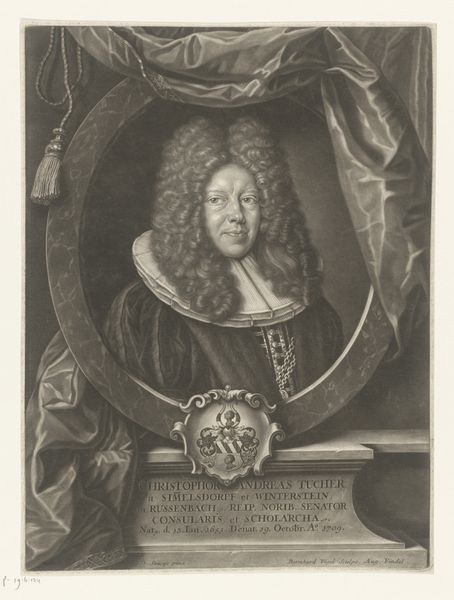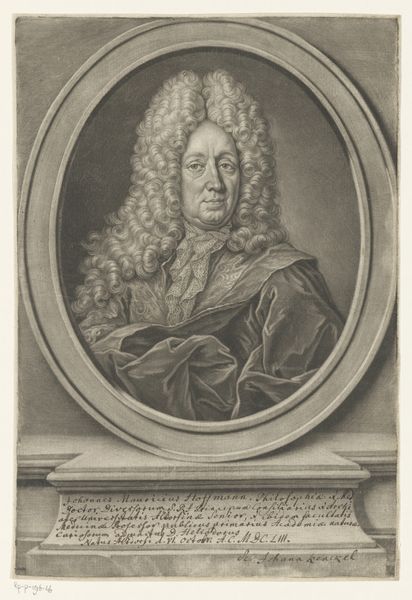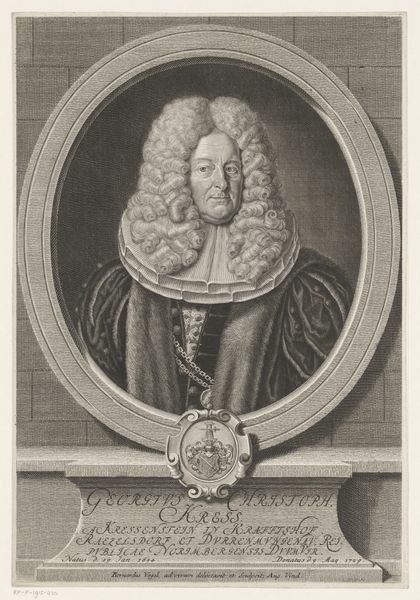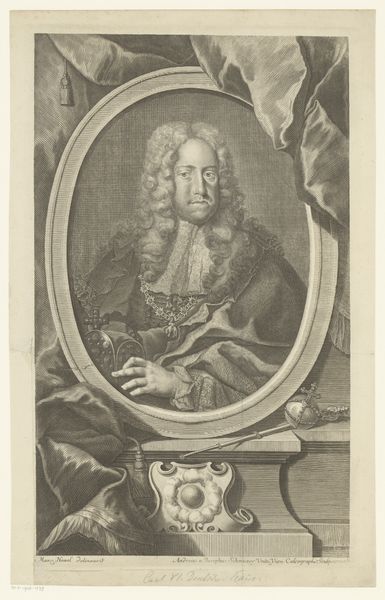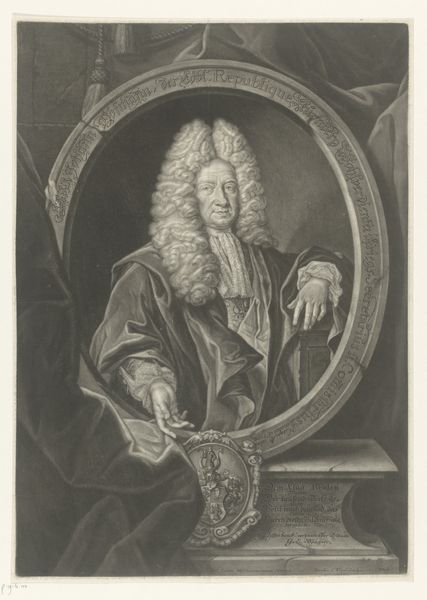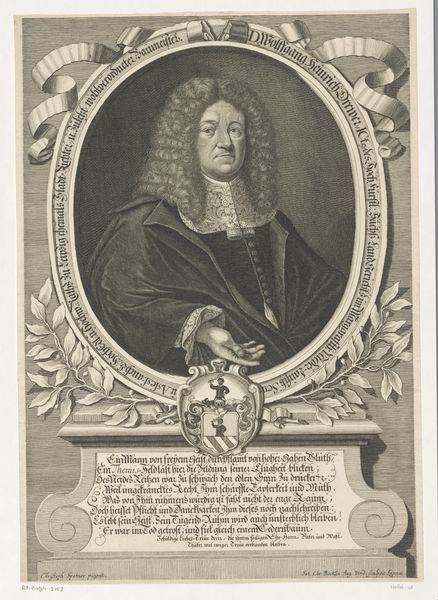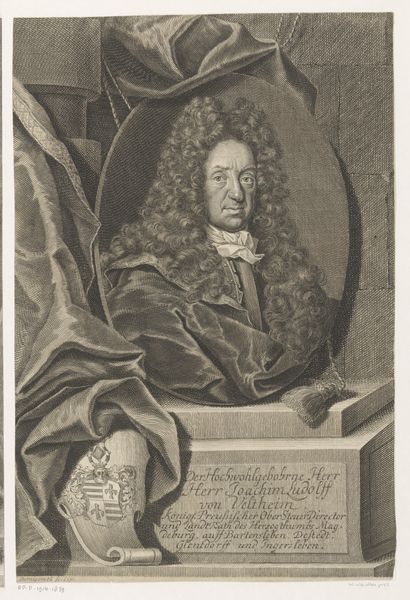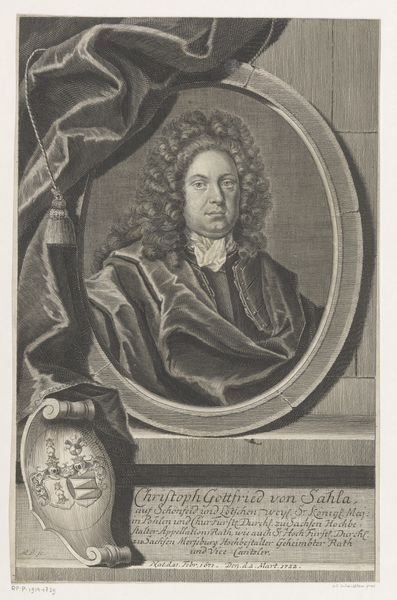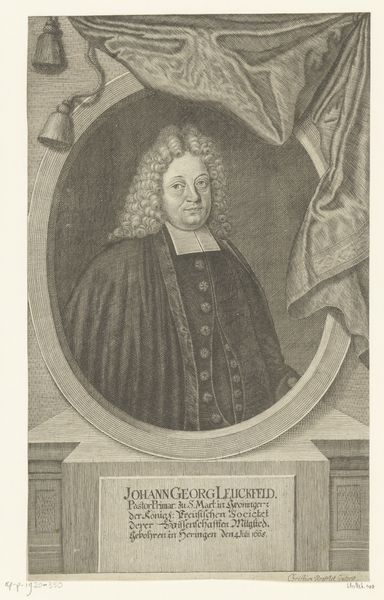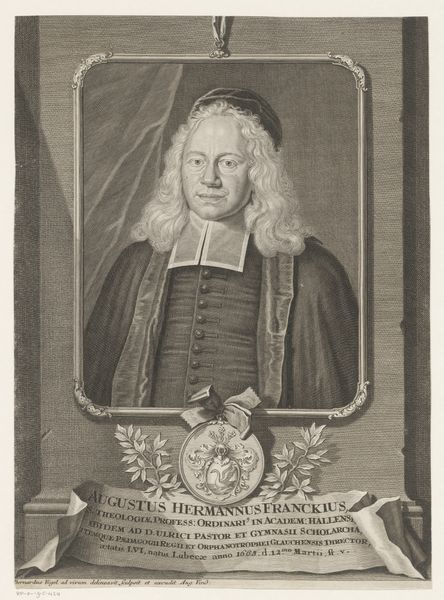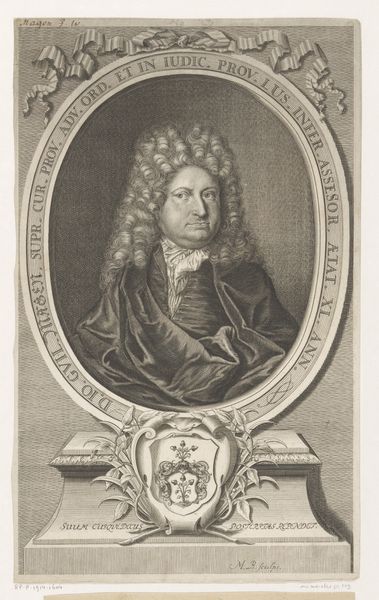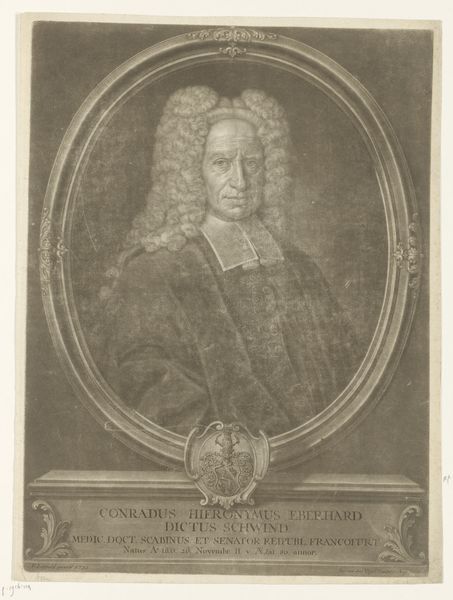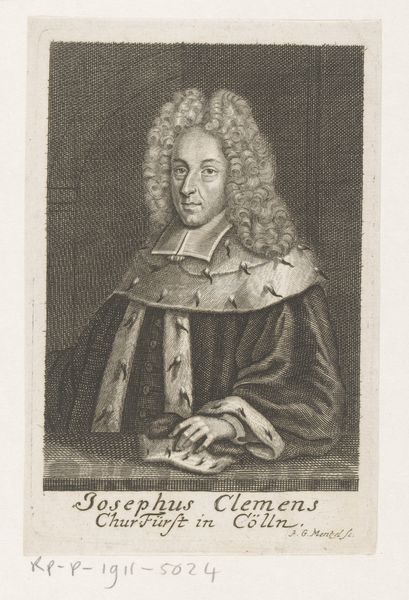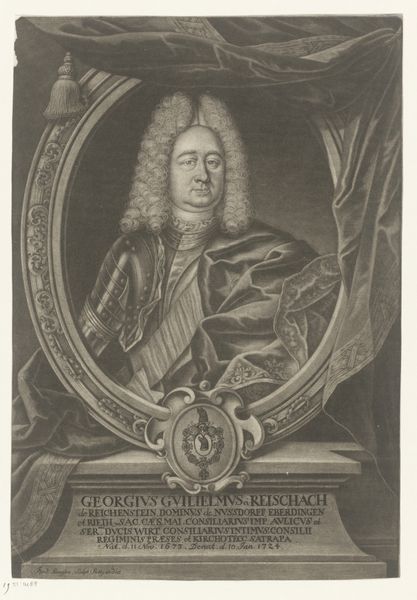
engraving
#
portrait
#
baroque
#
old engraving style
#
caricature
#
portrait drawing
#
history-painting
#
engraving
Dimensions: height 425 mm, width 269 mm
Copyright: Rijks Museum: Open Domain
This is Leopold Schmittner’s portrait of Joseph I, Holy Roman Emperor, made with etching sometime in the first half of the 18th century. Images of rulers like this one were crucial for the maintenance of power in the 17th and 18th centuries. They circulated widely within a country and across Europe, allowing the aristocracy and the wider public to visualise their leaders. Consider how Joseph is presented here, framed within an oval and surrounded by symbols of power such as the crown and scepter. He wears an elaborate wig and expensive clothing, visual signifiers of his status as a divinely appointed ruler. The Habsburg Empire was an especially complex political entity and portraits like this would have helped reinforce the idea of a strong, unified leadership. As historians, we can look at prints like this one to better understand the ways in which political power was secured and maintained. Further research into the printmaking industry of the time could reveal more about its role as a tool of statecraft.
Comments
No comments
Be the first to comment and join the conversation on the ultimate creative platform.
